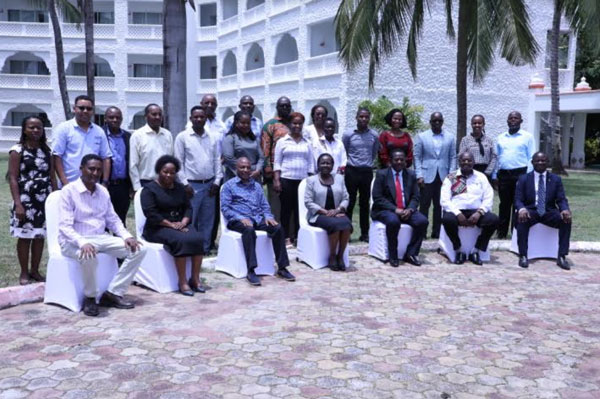
East African Countries Validate and Adopt a Regional Framework for Occupational Competency Assessment and Certification and Regional Policy Framework for TVET Integration
Kampala, Uganda | THE INDEPENDENT | Ethiopia, Kenya and Tanzania have adopted a framwork which will facilitate mutual recognition of qualifications and awards and subsequently free mobility of skilled labour and workforce and contribute to creating a harmonized labour market.
The East African countries have validated, and adopted the Regional Framework for Occupational Competency Assessment and Certification (RFOCAC) and the Regional Policy Framework for TVET Integration (RPFTI) at a workshop held recently in Mombasa, Kenya.
The RFOCAC and RPFTI are two key documents that will help the three countries to establish harmonized and standardized occupational competency assessment and certification systems, through a well-integrated TVET system in the region.
The workshop was attended by high-level officials representing governments of the three countries, members of the Regional TVET Qualifications Framework (RTQF) Implementation Advisory Group, comprising TVET experts, representatives of the private sector from the three countries, and the team from the Inter University Council for East Africa (IUCEA), the Regional Facilitation Unit for the project.
Speaking at the Opening Session of the workshop, the Principal Secretary for State Department for Technical and Vocational Education and Training, Republic of Kenya, Dr. Esther Muoria, said: “The development of the Regional Framework for Occupational Competency Assessment and Certification and the Regional Policy Framework for TVET Integration is a significant milestone in our efforts to integrate TVET systems in East Africa. These frameworks will help us to establish a harmonized TVET system in the region, which will facilitate mutual recognition of qualifications and awards and subsequently free mobility of skilled labour and workforce and contribute to creating a harmonized labour market.”
“The frameworks will help us to ensure that our TVET systems are comparable and compatible and that our graduates are equipped with the skills and knowledge they need to succeed in the regional and global labour markets,” Dr. Muoria said.
The Regional Project Coordinator of the World Bank-funded East Africa Skills for Transformation and Regional Integration Project (EASTRIP), Dr. Cosam Joseph, said: “EASTRIP is playing a vital role in helping the East African region develop its TVET systems and to prepare our youth for the future dynamic world of work”.
“The Regional Framework for Occupational Competency Assessment and Certification and the Regional Policy Framework for TVET Integration are important outputs of the project and will help us to achieve our goal of supporting regional integration,” Dr. Cosam said.
The RFOCAC will serve as the guiding system for harmonised occupational competency assessment and certification in the region. It will help to ensure that workers are assessed and certified against the same harmonised standards, regardless of the country in which they are trained.
The RPFTI is a broader and more comprehensive document that provides a framework for the integration of TVET systems in the region. It outlines the key areas of cooperation, such as curriculum development, quality assurance, tutors/teachers training, and assessment.
The two regional frameworks will help to ensure that skilled workers in East Africa have the skills and knowledge they need to contribute to the region’s economic development and can practice in any of the three countries in the region.
 The Independent Uganda: You get the Truth we Pay the Price
The Independent Uganda: You get the Truth we Pay the Price



